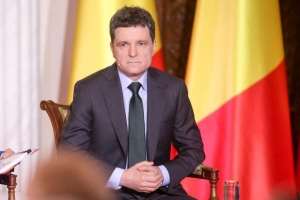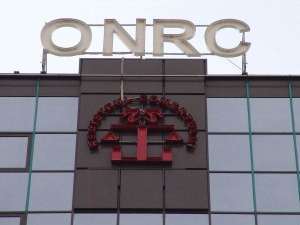Reporter: Dear Mr. Gabriel Ghelmegeanu, what is your review on the visit of the Romanian authorities in China?
Gabriel Ghelmegeanu: The delegation led by PM Emil Boc, which visited China, presented about 11-12 projects during its visit, of which about five took precedence over the others. What matters now is how dependable the Romanian authorities are going to be and how they plan going to prepare the backing of these five projects, considering that they want China to provide the funding for them.
Reporter: How viable would a Bucharest - Beijing flight be?
Gabriel Ghelmegeanu: Such a decision is also political in nature and it will belong to the Chinese authorities, since Romania does not have the fleet needed to support the connection between the two cities.
The fact that there is a flight of "Hainan Airlines" to Budapest was 100% a political decision made by the president of China. As far as I know this airline isn"t economically viable, and it being subsidized because it was politically decided that it would be useful to do so.
Think of the level that the Hungary - China trade relations are at. Hungary is two times smaller than Romania and its commercial exchanges with China are double what we have. The Bank of China has a branch in Budapest and Hungarian banks have branches in China. Creating a branch of Bank of China in Romania was discussed, but nothing was done.
We shouldn"t be surprised, we need to look at what is going on around us. Foreign banks such as "Citibank" or ING have branches in Romania because the companies that they were working with on other markets started doing business here. The moment we see major Chinese companies make major investments in Romania, then the Chinese banks will be interested in the Romanian market.
Reporter: What does Romania have to offer to Chinese companies, aside from cheap labor and a gateway to the European market?
Gabriel Ghelmegeanu: Romanian labor may be cheap only if you compare it with what is happening in other countries and especially in Western Europe. China also has cheap labor.
One serious issue is how much of our workforce is actually skilled. This issue of skills is crucial at the moment. We are really hot when it comes to papers, degrees, but in real life, that is a different matter...
The dependability and pragmatism of the Chinese authorities could play a major role in stimulating the development of trade with China. Even though we send positive signals when it comes to the Romanian Chinese relationships when we are abroad, we do exactly the opposite at home, in the way we treat big Chinese companies operating in Romania.
We do not distinguish between major Chinese companies and those operating in retail complexes like "Europa", "Red Dragon" or, more recently, "China Town".
If we this is what we limit the cooperation between China and Romania to, we won"t get any major partnerships or Chinese investments in Romania.
Reporter: Which Romanian sectors do you think would be of interest for Chinese investors?
Gabriel Ghelmegeanu: In the spring of 2011, the Chinese PM made the following statement in Budapest, concerning the strengths and the economic might of China: "We are very good at infrastructure and energy, regardless of whether it is conventional - thermal and hydroelectric (technology and equipment for hydroelectric plants) or renewable energy: wind, photovoltaic, solar".
The Chinese are very good at what they do because they are serious about everything they do.
Reporter: What is your opinion concerning the statements of former Finance minister Sebastian Vlădescu, who said that borrowing from China would have been an alternative for Romania?
Gabriel Ghelmegeanu: Sebastian Vlădescu made that statement in relation to the agreement with the IMF and the terms it had imposed and to their interest rate. I say that we should have tried to borrow from them, especially given the history of Romanian - Chinese relations. In the beginning of the 90s, when our economy was in an extremely precarious state, since our relations were good, China made a deposit of approximately 200 million dollars with the NBR, which was renewed every year.
I can"t find an explanation, or better said, I can find several explanations for the reaction of the Romanian president (ed. note: following the statement of Sebastian Vlădescu, president Traian Băsescu asked the ministers of the Boc Cabinet not to fall into "the trap" of the proposal to enter the borrowing agreement with China, saying that such a stand-by agreement would come with conditions).
When you"re borrowing money from someone, you have to abide by some terms. The IMF imposed some terms, it"s only natural that if China had lent us money, it would have had certain terms for us as well. But these terms would have concerned only the repayment of the loan, they would not have been political. Perhaps the Romanian authorities thought the Chinese might decide to make political requests of us. To me, this kind of reaction is unexplainable.
Reporter: Western analysts doubt China"s financial capabilities, in terms of long term sustainability. What is you comment on this?
Gabriel Ghelmegeanu: Considering how the state works in China, and what a good job it is doing at managing the economy, I would say that, on the contrary, we should try to cooperate with them.
If we start discussing scenarios in which China"s economic strength starts shaking, then that would mean that there is an economic disaster waiting for us, one that would encompass the entire world. I don"t think this is likely. The Chinese government is very good at managing its economy and I don"t think China will collapse. They have lots of resources and they keep manufacturing, their reserves are growing by the month and they have a trade surplus. China also has the alternative of domestic consumption, which was always used as a backup solution whenever its exports were affected by the international crisis.
People are neglecting the fact that this a different culture we are talking about. China and the world have a different approach and different points of view, but I don"t think that the Chinese economy will collapse like it did in America, where it fell prey to speculation, and then the European economy followed suit. Sure, China is affected as well because it is in the middle of a globalization process. So far, the Chinese authorities have been successful in avoiding a drastic drop of the economic growth index. China isn"t like the Western democracies, which have reached a point of economic anarchy, but it isn"t a dictatorship like Romania was until 1989 either. It is a merger of local precepts, the teachings of Confucianism are very valued, they are used extensively and they are harmoniously combined with the expertise accumulated over the 5,000 years of the history of the United States.
Caseta
Emil Boc: "The Bucharest-Beijing flight could also be viewed as a way of helping tourism develop. We have forwarded several proposals to the Chinese side, first of all the option of offering special travel packages such as transit tourism for Chinese citizens that already have a visa from a EU member state, and thanks to that visa they can also stay in Romania for five days. Our country is ready to offer such travel packages under the current requirements imposed by the legislation of the EU". PM Emil Boc also proposed that China draft a list of Chinese tour-operators which would be interested in cooperating with the Romanian Ministry of Regional Development and Tourism and hinted at the possibility of simplifying the process of issuing Romanian visas for Chinese tourists - while still complying with the rules of the European Union.
• Chinese investments in the domestic energy
The management of CHINA HUADIAN Corporation has expressed interest in investing in the thermoelectric sector. The talks with the Romanian authorities which were held in August were focused on projects at the Doiceşti plant and at the Rovinari Energy Complex. The Minister of the Economy, Ion Ariton, has also talked to the officials of CHINA COAL TECHNOLOGY & ENGINEERING GROUP CORPORATION about the investment opportunities which the Romanian mining industry can provide.
CHINA STATE GRID INTERNATIONAL DEVELOPMENT LTD also expressed its interest in investing in the electricity transport sector in Romania.
• "China Nuclear Power Engineering", interested in building reactors 3 and 4
The Minister of the Economy, Ion Ariton, recently met with representatives of "Enel" and "Arcelor Mittal", which are shareholders in the company which handles the project for the construction of reactors 3 and 4 of the Cernavodă Nuclear Plant. Talks during the meeting revolved around the future of the Cernavodă project and the opportunities for attracting new investors. The Romanian authorities have informed the shareholders about the recently received letter of intent by which "Korea Nuclear" Consortium expressed its intention to participate in the project, as well as about the interest expressed by "China Nuclear Power Engineering" Co. Ltd. during the visit of Ion Ariton in China, where he accompanied PM Emil Boc, in the month of August.
• SINOHYDRO wants to invest in the energy sector
The Minister of the Economy, Ion Ariton, recently met the mission of Chinese company SINOHYDRO. During the meeting, SINOHYDRO expressed its interest to participate in the project of the hydroelectric plant Tarniţa-Lăpuşteşti, in the retooling of the Bicaz hydroelectric plant (Dimitrie Leonida), as well as in other energy projects, accomplished using the private-public partnership system.
SINOHYDRO is a network of Chinese state owned companies, which operates in sectors such as hydroelectric engineering and construction. SINOHYDRO was the general contractor for the largest hydroelectric plant in the world, Three Gorges, which has an installed power of 18,400 MW. The company currently runs ongoing projects in architecture, and has investments projects in real estate, R & D and in the design and production of construction equipment.
• In April, SGCC of China expressed its interest in "Transelectrica"
In April this year, "State Grid Corporation of China" (SGCC), which was among the top ten largest companies in the world in the Forbes 2010 chart, expressed its interest in becoming a shareholder of energy carrier "Transelectrica" (TEL). Sources close to the discussion have said: "The Chinese company has also presented an offer to the Ministry of the Economy, including a bid, to buy the entire 15% block of Transelectrica shares which the ministry intends to float on the Bucharest Stock Exchange this year". In 2011, SGCC was ranked the eighth in the Forbes top 500 largest companies in the world, with 184.5 billion dollars in revenue in 2009, and was also voted the largest utilities provider in the world.
The company has over 1.5 million employees. SGCC was set up in 2002 and its line of business is the construction and operation of electric grids in China.


















































